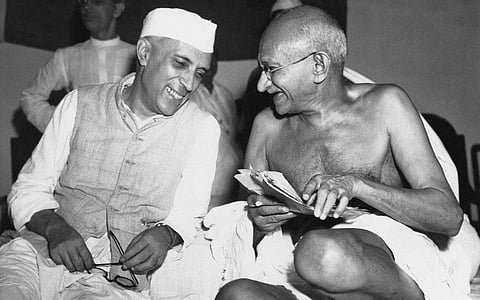Apart from what this person could ask Nehru, one thing that he should not, would be about the leader's 'socialism'. Nehru would not have given you a straight answer. In his autobiography, Nehru himself referred to his socialism as something not floating in air, but as a resolution which even "a capitalistic state could easily accept". A socialism which could serve the interests of the 'rich and powerful' in this country while aiming at a substantive redistribution of resources, belonging to the rich and powerful, among all the citizens of an India which was, and still is, predominantly poor; seems too unrealistic in the first place.


